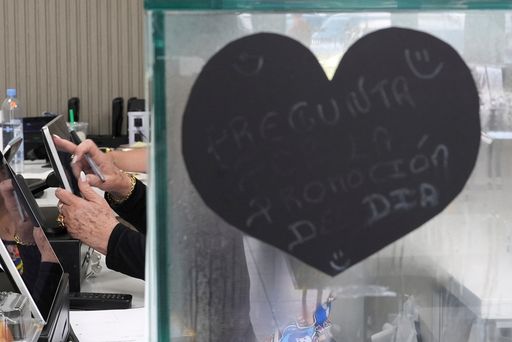The Trump administration has terminated legal protections for hundreds of thousands of Haitians living in the United States, setting the stage for mass deportations.
The Department of Homeland Security (DHS) said on Friday that it is ending Temporary Protected Status (TPS) for Haitian nationals, claiming conditions in their homeland have improved enough to warrant their return.
The program is set to expire on August 3, with termination taking effect on September 2.
TPS allows individuals from countries facing armed conflict or environmental disaster to live and work legally in the US.
Haitians have benefited from the status since a devastating earthquake struck the country in 2010.
This move affects around 500,000 people—many of whom have lived in the US for more than a decade—who could now be forced to return to a country still gripped by crisis.

Dire conditions
A DHS spokesperson defended the decision, saying it "restores integrity in our immigration system and ensures that Temporary Protected Status is actually temporary." The department also advised Haitians to use a mobile app called CBP Home to prepare for departure.
But critics say the decision ignores dire conditions on the ground.
The US State Department’s travel advisory for Haiti remains unchanged, still urging Americans not to travel there due to widespread violence, kidnappings and lack of medical infrastructure.
The move follows the administration’s broader efforts to limit immigration, including revoking humanitarian parole programmes and scaling back TPS protections for other nationalities such as Venezuelans and Afghans.
Frantz Desir, 36, who arrived in 2022 seeking asylum, now fears for his future.
"You see your friends who went to work every day suddenly unable to leave home—not because they’re sick or fired, but because of a decision like this," he said.
"Even if it hasn’t happened to you yet, you start thinking, 'What if I’m next?'"
Desir lives in Springfield, Ohio, with his wife and two children, and works at a car parts factory.
His asylum court date was recently pushed to 2028.
Some TPS holders have applied for asylum or other legal status, but it remains unclear how many will ultimately be left without protection.
Win for Trump
Meanwhile, the US Supreme Court has removed a key legal barrier to a Trump administration order aimed at restricting birthright citizenship.
In a 6-3 decision, the court ruled that lower courts do not have the authority to issue nationwide injunctions blocking the executive order.
The order, signed on the first day of Trump’s second term, seeks to deny automatic US citizenship to children born on American soil to non-citizens holding short-term visas or without legal status.
While the court didn’t rule on the legality of the order itself, the three liberal justices dissented, arguing it violates US law.
The decision covers three related lawsuits, all of which were initially blocked by lower courts before being overturned on appeal.



















